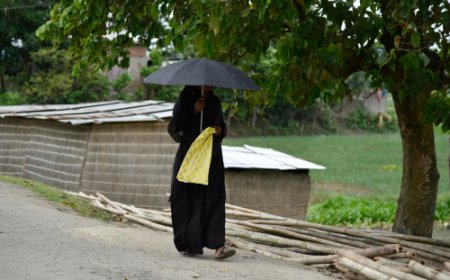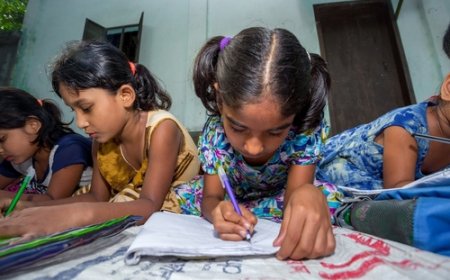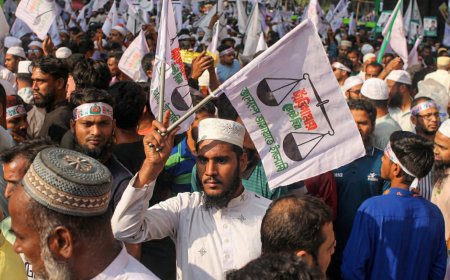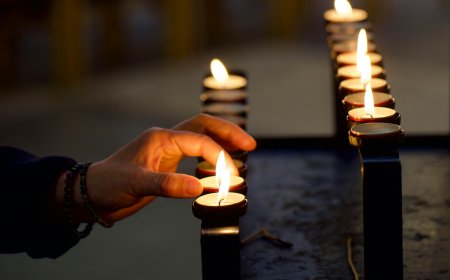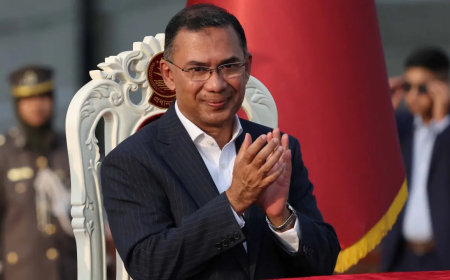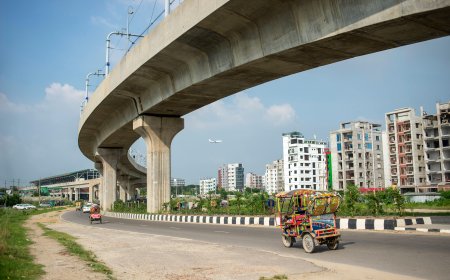A Verdict That Weakens Justice and Strengthens India’s Hand
In the end, this is not merely about the fate of one leader. It is about whether Bangladesh chooses a future built on due process and political inclusion, or one defined by courtroom theatrics and punitive exclusion. Right now, the scales are tilted dangerously toward the latter.

The death sentence handed to former Bangladesh Prime Minister Sheikh Hasina has generated shockwaves across the region, but not for the reasons a genuine accountability process should.
For many inside Bangladesh, the verdict represents long-awaited justice for the brutal crackdown on protesters in 2024 that left a reported 1,400 people dead.
Yet for anyone examining the process closely, the outcome makes neither legal nor political sense. Instead, it exposes the fragility of Bangladesh’s institutions, deepens domestic divides, and hands India’s Modi regime every reason to refuse Dhaka’s demand to extradite Hasina.
In effect, the trial style and sentence do far more to sustain political theatre than to deliver truth or reconciliation.
To begin with, the legal deficiencies are glaring. Trials in absentia are always contentious; when the accused is a former prime minister with a polarising legacy and massive political following, they become even more problematic.
The tribunal that tried Hasina was originally created to prosecute atrocities committed during the 1971 Liberation War. Its sudden repurposing to try the events of 2024, followed by the rapid restructuring of legal provisions to fit the new objectives, immediately weakened the perception of impartiality.
Adding to this, reports that Hasina’s defence team had limited access to evidence or opportunities to challenge prosecution claims, make it impossible to argue that the process met international fair-trial standards.
The tribunal accused Hasina of inter alia murder, torture, and ordering the use of lethal weapons, including drones and live ammunition, against protesters. These are grave allegations that deserve full scrutiny, but scrutiny requires a transparent process, not a rushed trial that appears engineered to produce a predetermined outcome.
By imposing the death penalty, the interim government has ensured that the focus has shifted from alleged crimes to the legitimacy of the tribunal itself.
Even human-rights organizations that criticized Hasina’s 2024 crackdown have expressed regret that the trial was conducted in absentia and produced a capital sentence, an outcome they universally oppose. Justice must not only be done; it must be seen to be done.
The political implications for Bangladesh are equally troubling. The student uprising that toppled Hasina reflected genuine grievances and widespread anger at authoritarian overreach. But transitions after mass protests succeed only when accountability is paired with political inclusion, not persecution.
Instead, the interim government led by Muhammad Yunus has banned the Awami League from contesting elections, arrested hundreds of its senior figures, and now delivered a death sentence to its chief. What emerges is not a roadmap for healing but the consolidation of a new winner-takes-all order.
In Bangladesh’s deeply polarised society, where political loyalties often resemble identity markers, the message this verdict sends is incendiary. For Hasina’s supporters, it reinforces the narrative that she has been framed by political rivals in an act of national betrayal.
For neutral observers, it raises concerns that the interim government is more interested in political vengeance than democratic reform. And for a fragile country heading into its most consequential election in nearly two decades, this verdict guarantees that reconciliation, already difficult, becomes almost impossible.
A society divided politically at its core cannot build a stable future through the exclusion of a major political force. Even those who opposed Hasina’s policies acknowledge that banning her party from the political arena and sentencing her to death risks turning her into a martyr.
Instead of easing tensions, the verdict hardens them. It alienates millions of Bangladeshis, undermines trust in state institutions, and deepens the perception that the judicial process is simply an extension of political rivalry. For an interim government that claims to champion democracy and the rule of law, this message is a dangerous contradiction.
Against this backdrop, Bangladesh’s aggressive push for India to extradite Hasina looks not like a legal request but a geo-political gambit, and one that India’s Modi regime has little incentive to accommodate.
For New Delhi, the verdict instantly provides a convenient shield. India can now cite serious concerns about due process, the conduct of the trial, and the imposition of a death sentence, grounds that make extradition exceptionally difficult under international norms.
Even states that maintain cordial ties rarely hand over individuals facing capital punishment unless iron-clad fair-trial guarantees are provided. In this case, the absence of such guarantees is precisely the point.
India also has political reasons to keep Hasina on its soil. She has been one of New Delhi’s closest and most reliable partners in South Asia for fifteen years. Her government cooperated closely on security, counter-terrorism, connectivity, transit rights, and cross-border intelligence sharing.
Extraditing her to face execution risks alienating large sections of Modi’s Hindutva supporters, while sheltering her comes at little diplomatic cost.
Indeed, the more Bangladesh insists on extradition and brands India’s reluctance as “animosity,” the easier it becomes for Narendra Modi to project his government as a responsible actor guided not by politics but by legal and humanitarian principles.
Moreover, India now gains additional leverage. By hosting Hasina, it holds a bargaining chip: Bangladesh must tread carefully on sensitive issues, from border management to Rohingya repatriation, because a misstep could push India from diplomatic neutrality to open criticism. Modi’s government, often accused of coercive diplomacy, suddenly finds itself in a position where restraint appears principled. That is exactly the outcome New Delhi prefers.
The irony is unmistakable. A verdict meant to demonstrate Bangladesh’s commitment to accountability has instead strengthened India’s strategic hand and undermined the credibility of the very institutions tasked with delivering justice. By rushing a capital conviction through a tribunal redesigned overnight, the interim government has not closed a chapter of impunity; it has opened one of uncertainty and mistrust.
The tragedy of the 2024 crackdown should have led Bangladesh toward a transparent, inclusive, and internationally credible justice process, one that honoured victims, strengthened institutions, and promoted national healing.
Instead, the death sentence delivered against Sheikh Hasina risks entrenching political vendettas, deepening internal fractures, and complicating regional diplomacy.
Whether one views Hasina as a flawed leader responsible for serious abuses or as a victim of political retribution, the way her verdict was delivered serves neither justice nor stability.
In the end, this is not merely about the fate of one leader. It is about whether Bangladesh chooses a future built on due process and political inclusion, or one defined by courtroom theatrics and punitive exclusion. Right now, the scales are tilted dangerously toward the latter.
Ashok Swain is a professor of peace and conflict research at Uppsala University, Sweden.
What's Your Reaction?













